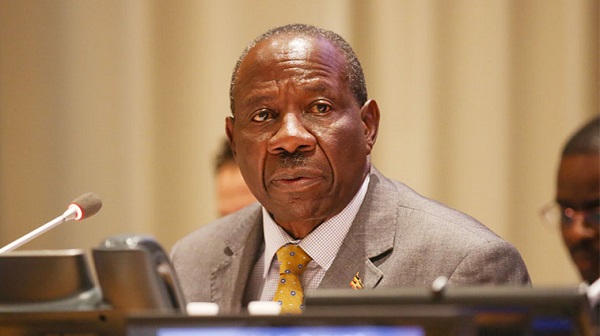
Phillip Niwamanya, a tax consultant at KPMG Uganda told The Independent that Akol’sperformance for the last four years is commendable but it falls short of the World Bank recommendation. “The World Bank is of the view that Uganda has the potential to have a tax to GDP ratio of 20% and above,” Niwamanya said.
He suggests that more should be done to widen the tax base. Options for doing this, he said, are focusing on taxing the digital economy because that is where a lot of value is being created.
He added that the government could implement provisions of the law such as the requirement to issue electronic invoices that are aimed at widening the tax base in addition to requiring every individual whether formally employed or not to file an annual income tax return.
Niwamanya urges Akol and team to carryout regular and effective tax audits including training of officers in this area. He also said that URA could collaborate more with other tax authorities to curb tax avoidance by digital companies and multinationals in addition to enhancing its taxpayer education programmes.
Niwamanya says Uganda’s tax policy is supportive of Akol’s efforts given that it is focusing on curbing tax avoidance by multinationals and widening the tax base in addition to attracting Foreign Direct Investment (FDI). “In the 2018 tax amendments, several exemptions ranging from income tax, VAT and stamp duty were extended to developers and operators of industrial parks and free zones,” he said.
Going forward, he said, anticipated improvement in economic performance has the potential to attract more FDI which will result into improved tax collections. John Mark Agong, the budget policy specialist at Civil Society Budget Advocacy Group (CSBAG) advises Akol to expand the TREP project to all the districts to increase the number of taxpayers.
He said that URA should go beyond their mandate and participate in activities geared towards showing the value of tax to taxpayers. But he said that Akol’sperformance in the new term will depend on how the designers of tax policy and the budget spend on key sectors of the economy like agriculture.
“Investing more money in agriculture would increase economic activity and taxable income since majority of the population is employed there,” he said. He also said that URA and government in general should study the difficulties taxpayers are going through while paying tax as one way of enhancing stakeholder relationship and tax compliance.
While presenting the views of the private sector at the budget conference for the FY2019/2020 in September this year, Patrick Bitature, the chairperson of the Private Sector Foundation Uganda targeted both the URA and the government.
He said that for the country to collect more tax, savings by the people must be encouraged. For instance, he said that the larger part of the population and only up to 20% of the taxpayers are accounting for more than 80% of the tax revenue.
He also said formalisation of the economy is critical in supporting revenue growth. Available data shows that more than 8million Ugandans who should be paying taxes are outside the tax bracket. “While we appreciated the expenditure and review plan in last year’s budget framework paper, there was concern that the budget was strong on expenditure and deep on taxation but quite weak on wealth creation which would otherwise be the best way to increase Uganda’s domestic revenue mobilisation,” he said.
He added that the current tax regime does not seem to mirror what government highlights in the medium term, with the theme “industrialization for job creation and shared prosperity”. And that the tax regime does not support production and value addition in the case of excise duty.
“A tax regime that deters innovation, constrains business startups and formalisation, and widens the income inequality goes against the good intentions of our budget strategy as it will not be consistent with job growth and shared value,” Bitature concluded.
Going forward According to the revenue performance document, URA officials say the outlook into the future will focus on exhibiting more resilience and commitment to increasing domestic revenues; cultivating taxpaying culture amongst all citizens; engaging more strategic partners to support advisory and exchange of information.
“We will seek to further simplify business processes, provide client centric solutions delivered by quality human resources both in terms of professional competence and attitude of service,” officials said.
 The Independent Uganda: You get the Truth we Pay the Price
The Independent Uganda: You get the Truth we Pay the Price


